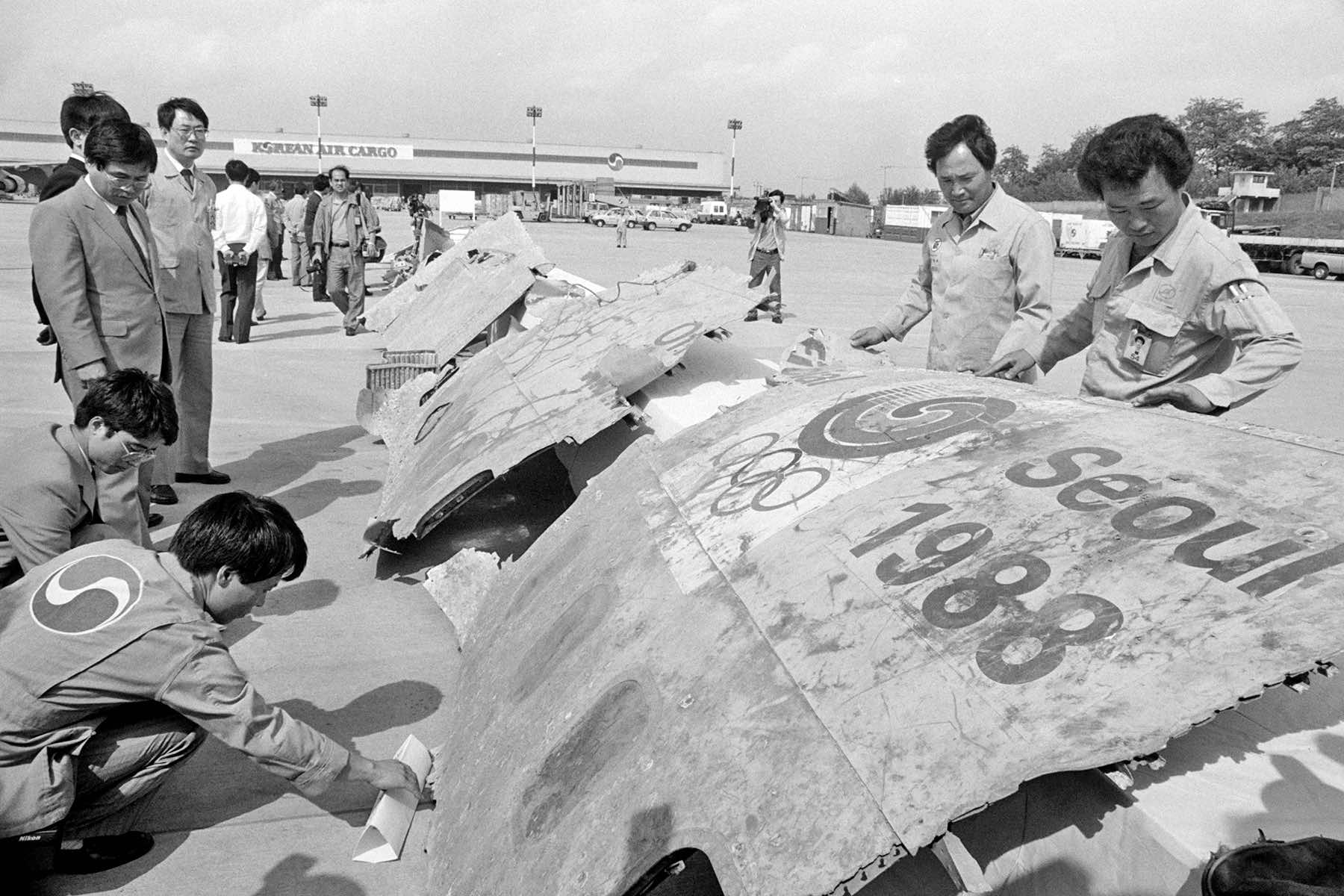
The 1988 Seoul Olympics, officially known as the Games of the XXIV Olympiad, was a monumental event for the Republic of Korea (ROK) and marked a significant turning point in the nation’s history. The Olympics held a profound significance in the context of the late 1980s. It also helped to shape South Korea’s global image and domestic identity for decades to come.
The selection of Seoul was influenced by Cold War politics. During the 1980s, the International Olympic Committee (IOC) sought to promote peace and balance in a world divided between the capitalist West and the Communist East.
During the Cold War, the Olympics were much more than just a sporting event. They were a powerful tool for nations to project their political ideologies, showcase economic achievements, and enhance their international standing. For countries like Japan and South Korea, the Olympics provided a stage to demonstrate their recovery and modernization after periods of devastation.
Awarding the Olympics to Seoul was seen as a way to engage with and potentially stabilize a volatile region. South Korea, a U.S. ally, represented the West, but it was also adjacent to communist North Korea, creating a strategic bridge between the two blocs.
The IOC was interested in broadening the geographical distribution of the Games. After hosting the Olympics in European and North American cities for several years, Seoul’s bid was attractive as it presented an opportunity to bring the Olympics to East Asia for the first time since the 1964 Tokyo Olympics.
By the time Seoul was awarded the 1988 Olympics in 1981, South Korea had undergone rapid economic growth, known as the “Miracle on the Han River.” It had transformed from a war-torn nation into one of Asia’s most dynamic economies. Hosting the Olympics was seen as a way to showcase South Korea’s remarkable development and modernization to the world.
Although South Korea was under a military dictatorship during the bidding process, the country was seen as relatively stable. The South Korean government, under President Chun Doo-hwan, was eager to use the Olympics as a way to legitimize its rule and showcase the nation’s progress on the world stage.
However, just a year before the Games began in June 1987 a Democratic Uprising took place, which led to the first direct presidential election in decades. The Olympics then came to symbolize South Korea’s commitment to democracy and political stability.
Hosting the Olympics led to significant infrastructural developments in Seoul, including the construction of sports venues, transportation systems, and urban beautification projects. The developments supported the games and also contributed to Seoul’s long-term urban planning.
The Seoul Olympics were also a platform for South Korea to display its technological prowess, with innovations in broadcast technology, including advanced color TV broadcasting and early forms of high-definition television, which showcased the nation’s advancements in electronics and technology.
The Seoul Olympics fostered a sense of national pride and unity among South Koreans. It was a moment where the country could celebrate its achievements on a global stage, and it reinforced a collective identity centered around resilience, growth, and progress.
The games were credited for inspiring a generation of young South Koreans to pursue sports, contributing to the country’s continued success in various athletic disciplines, particularly in archery, taekwondo, and short-track speed skating.
The Olympics also helped to introduce Korean culture to the world, paving the way for the global spread of Korean pop culture, which would later be termed the “Korean Wave” or Hallyu. The global visibility built the foundation for South Korea’s cultural exports, such as K-pop, film, and cuisine, which have since become significant components of its soft power.
Providing an actual economic benefit, the successful hosting of the Olympics significantly boosted South Korea’s tourism industry and attracted foreign investment. The global exposure helped to enhance Seoul’s reputation as a vibrant and modern city, leading to increased economic opportunities.
The games also highlighted the entrenched divisions between North and South Korea. North Korea’s boycott underscored the ongoing tensions on the Korean Peninsula. However, the success of the Olympics and South Korea’s enhanced international status placed additional pressure on North Korea, which influenced inter-Korean relations.
The Olympics played a role in improving South Korea’s relations with former adversaries, particularly with the Soviet Union and China. The participation of these countries in the Olympics marked a thaw in relations, which would eventually lead to the establishment of formal diplomatic ties between South Korea and both nations in the early 1990s.
The global spotlight that shone on South Korea during the 1988 Seoul Olympics, celebrating the nation’s emergence as a modern, democratic power, was a stark contrast to the situation just a few months earlier. The nation was shaken by the tragic downing of Korean Air Flight 858, a brutal reminder that the Cold War’s deadly tensions were far from over.
On November 29, 1987, Korean Air Flight 858, a Boeing 707, took off from Baghdad with a scheduled stopover in Abu Dhabi before continuing to Seoul. The passengers, a mix of South Korean workers, students, and diplomats, were nearing the end of their journey when, without warning, the plane exploded in mid-air over the Andaman Sea, south of Myanmar – then known as Burma.
All 115 people on board were killed. In the aftermath, South Korea and the international community grappled with the mystery of what could have caused such a catastrophic event. Investigators quickly turned their attention to the possibility of sabotage.
The breakthrough came when authorities in Bahrain detained two North Korean agents, Kim Hyon-hui and her male accomplice, who had boarded the plane in Baghdad and disembarked in Abu Dhabi before the explosion. Their suspicious behavior and the discovery of Japanese passports that turned out to be fake deepened the mystery.
Under interrogation, the male agent committed suicide with a cyanide capsule, but Kim Hyon-hui was captured before she could do the same. Her subsequent confession was chilling. She and her accomplice had placed a time-bomb in the overhead luggage compartment of the aircraft during the Abu Dhabi stopover, before disembarking themselves. The mission was part of a North Korean plot to disrupt the upcoming 1988 Seoul Olympics and to destabilize the South Korean government.
The repercussions of the bombing were immediate and profound. In South Korea, there was a wave of public outrage, with demands for justice and heightened tensions on the Korean Peninsula. The South Korean government, led by President Chun Doo-hwan, accused North Korea of state-sponsored terrorism, further deepening the already fraught relations between the two Koreas.
Internationally, the bombing was condemned by governments around the world, leading to increased pressure on North Korea. The incident highlighted the isolated and rogue nature of the North Korean regime under Kim Il-sung, which resorted to such drastic measures to assert its influence and challenge South Korea’s growing international prominence.
Kim Hyon-hui, who was initially sentenced to death for her role in the bombing, became a focal point of international media attention. Her public confession and subsequent trial provided a rare insight into the secretive and brutal methods of North Korean intelligence operations.
However, South Korea’s President Roh Tae-woo would ultimately pardoned Kim in 1990, stating that she had been brainwashed by the North Korean regime and expressing hope that her story would serve as a catalyst for understanding the human rights abuses in the North.
In the years since, Kim Hyon-hui has lived a life far removed from her past as a North Korean operative. Her story, as told in interviews and a memoir, details the complex and often tragic nature of the Korean conflict, where individuals are often mere pawns in a much larger geopolitical struggle.
The Korean Air Flight 858 bombing remains a stark reminder of the lengths to which North Korea has gone to maintain its regime and assert its power. The attack, intended to undermine the 1988 Seoul Olympics, instead galvanized international support for South Korea and further isolated the North.
MI Staff (Korea)
Lее Mаtz
Park Chang-gi (Yonhap via AP), Lineno Cironneau (AP), Yun Jai-hyoung (AP), and Mark Duncan (AP)
- Exploring Korea: Stories from Milwaukee to the DMZ and across a divided peninsula
- A pawn of history: How the Great Power struggle to control Korea set the stage for its civil war
- Names for Korea: The evolution of English words used for its identity from Gojoseon to Daehan Minguk
- SeonJoo So Oh: Living her dream of creating a "folded paper" bridge between Milwaukee and Korean culture
- A Cultural Bridge: Why Milwaukee needs to invest in a Museum that celebrates Korean art and history
- Korean diplomat joins Milwaukee's Korean American community in celebration of 79th Liberation Day
- John T. Chisholm: Standing guard along the volatile Korean DMZ at the end of the Cold War
- Most Dangerous Game: The golf course where U.S. soldiers play surrounded by North Korean snipers
- Triumph and Tragedy: How the 1988 Seoul Olympics became a battleground for Cold War politics
- Dan Odya: The challenges of serving at the Korean Demilitarized Zone during the Vietnam War
- The Korean Demilitarized Zone: A border between peace and war that also cuts across hearts and history
- The Korean DMZ Conflict: A forgotten "Second Chapter" of America's "Forgotten War"
- Dick Cavalco: A life shaped by service but also silence for 65 years about the Korean War
- Overshadowed by conflict: Why the Korean War still struggles for recognition and remembrance
- Wisconsin's Korean War Memorial stands as a timeless tribute to a generation of "forgotten" veterans
- Glenn Dohrmann: The extraordinary journey from an orphaned farm boy to a highly decorated hero
- The fight for Hill 266: Glenn Dohrmann recalls one of the Korean War's most fierce battles
- Frozen in time: Rare photos from a side of the Korean War that most families in Milwaukee never saw
- Jessica Boling: The emotional journey from an American adoption to reclaiming her Korean identity
- A deportation story: When South Korea was forced to confront its adoption industry's history of abuse
- South Korea faces severe population decline amid growing burdens on marriage and parenthood
- Emma Daisy Gertel: Why finding comfort with the "in-between space" as a Korean adoptee is a superpower
- The Soul of Seoul: A photographic look at the dynamic streets and urban layers of a megacity
- The Creation of Hangul: A linguistic masterpiece designed by King Sejong to increase Korean literacy
- Rick Wood: Veteran Milwaukee photojournalist reflects on his rare trip to reclusive North Korea
- Dynastic Rule: Personality cult of Kim Jong Un expands as North Koreans wear his pins to show total loyalty
- South Korea formalizes nuclear deterrent strategy with U.S. as North Korea aims to boost atomic arsenal
- Tea with Jin: A rare conversation with a North Korean defector living a happier life in Seoul
- Journalism and Statecraft: Why it is complicated for foreign press to interview a North Korean defector
- Inside North Korea’s Isolation: A decade of images show rare views of life around Pyongyang
- Karyn Althoff Roelke: How Honor Flights remind Korean War veterans that they are not forgotten
- Letters from North Korea: How Milwaukee County Historical Society preserves stories from war veterans
- A Cold War Secret: Graves discovered of Russian pilots who flew MiG jets for North Korea during Korean War
- Heechang Kang: How a Korean American pastor balances tradition and integration at church
- Faith and Heritage: A Pew Research Center's perspective on Korean American Christians in Milwaukee
- Landmark legal verdict by South Korea's top court opens the door to some rights for same-sex couples
- Kenny Yoo: How the adversities of dyslexia and the war in Afghanistan fueled his success as a photojournalist
- Walking between two worlds: The complex dynamics of code-switching among Korean Americans
- A look back at Kamala Harris in South Korea as U.S. looks ahead to more provocations by North Korea
- Jason S. Yi: Feeling at peace with the duality of being both an American and a Korean in Milwaukee
- The Zainichi experience: Second season of “Pachinko” examines the hardships of ethnic Koreans in Japan
- Shadows of History: South Korea's lingering struggle for justice over "Comfort Women"
- Christopher Michael Doll: An unexpected life in South Korea and its cross-cultural intersections
- Korea in 1895: How UW-Milwaukee's AGSL protects the historic treasures of Kim Jeong-ho and George C. Foulk
- "Ink. Brush. Paper." Exhibit: Korean Sumukhwa art highlights women’s empowerment in Milwaukee
- Christopher Wing: The cultural bonds between Milwaukee and Changwon built by brewing beer
- Halloween Crowd Crush: A solemn remembrance of the Itaewon tragedy after two years of mourning
- Forgotten Victims: How panic and paranoia led to a massacre of refugees at the No Gun Ri Bridge
- Kyoung Ae Cho: How embracing Korean heritage and uniting cultures started with her own name
- Complexities of Identity: When being from North Korea does not mean being North Korean
- A fragile peace: Tensions simmer at DMZ as North Korean soldiers cross into the South multiple times
- Byung-Il Choi: A lifelong dedication to medicine began with the kindness of U.S. soldiers to a child of war
- Restoring Harmony: South Korea's long search to reclaim its identity from Japanese occupation
- Sado gold mine gains UNESCO status after Tokyo pledges to exhibit WWII trauma of Korean laborers
- The Heartbeat of K-Pop: How Tina Melk's passion for Korean music inspired a utopia for others to share
- K-pop Revolution: The Korean cultural phenomenon that captivated a growing audience in Milwaukee
- Artifacts from BTS and LE SSERAFIM featured at Grammy Museum exhibit put K-pop fashion in the spotlight
- Hyunjoo Han: The unconventional path from a Korean village to Milwaukee’s multicultural landscape
- The Battle of Restraint: How nuclear weapons almost redefined warfare on the Korean peninsula
- Rejection of peace: Why North Korea's increasing hostility to the South was inevitable
- WonWoo Chung: Navigating life, faith, and identity between cultures in Milwaukee and Seoul
- Korean Landmarks: A visual tour of heritage sites from the Silla and Joseon Dynasties
- South Korea’s Digital Nomad Visa offers a global gateway for Milwaukee’s young professionals
- Forgotten Gando: Why the autonomous Korean territory within China remains a footnote in history
- A game of maps: How China prepared to steal Korean history to prevent reunification
- From Taiwan to Korea: When Mao Zedong shifted China’s priority amid Soviet and American pressures
- Hoyoon Min: Putting his future on hold in Milwaukee to serve in his homeland's military
- A long journey home: Robert P. Raess laid to rest in Wisconsin after being MIA in Korean War for 70 years
- Existential threats: A cost of living in Seoul comes with being in range of North Korea's artillery
- Jinseon Kim: A Seoulite's creative adventure recording the city’s legacy and allure through art
- A subway journey: Exploring Euljiro in illustrations and by foot on Line 2 with artist Jinseon Kim
- Seoul Searching: Revisiting the first film to explore the experiences of Korean adoptees and diaspora




































